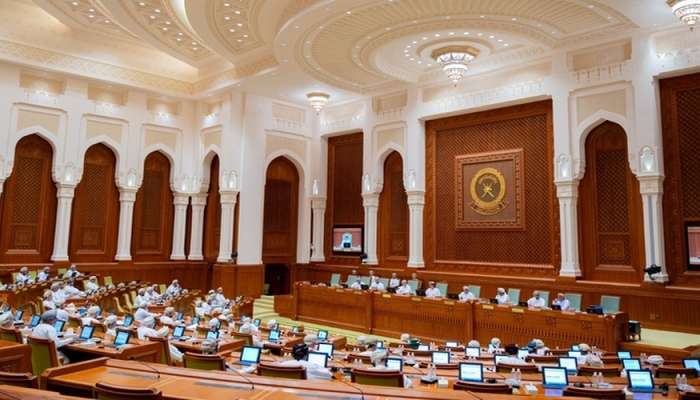
Muscat: The Shura Council today hosted Sultan Salim Al Habsi, Minister of Finance, to discuss the ministry's statement on the draft State Budget for the fiscal year 2025. The meeting was held as part of the Council’s 2nd session of the 10th Term’s second annual sitting.
Khalid Hilal Al Maawali, Chairman of the Shura Council, said that the meeting reflects the Council’s keenness to learn about upcoming year’s volume of revenues, expenditure estimates, economic growth rates, the financial and monetary policy, the size of savings versus investment and oil production rates and prices.
For his part, Al Habsi said that financial measures and policies applied by the government since 2020, coupled with a rise in oil prices, directly reflected on the improvement of the Sultanate of Oman’s economic and financial indices—the most prominent of which is a decline in the public debt and the restoration of investment worthiness.
Al Habsi pointed out that the government keeps managing the state's public finances in accordance with preset plans aimed to enhance the growth of non-oil revenues and upgrade the efficiency of public spending, in addition to cutting down public debt to help achieve financial sustainability and economic growth.
The minister affirmed that the draft State Budget 2025 was designed to enable the government to maintain the smooth flow of financial, economic and social stability. This, he added, goes in line with the financial framework of the Tenth Five-Year Plan and Oman Vision 2040.
He explained that the estimates of State Budget 2025 accomodated all measures for providing insurance coverage and protection for various segments of society, maintaining the level of spending on basic services (like education, health and housing) and stimulating the national economy by enhancing the growth of companies and projects that support economic diversification.
The session reviewed prominent features of the budget, including financial, economic and social aspects and the basic assumptions that shaped the projections of State Budget 2025 in tandem with oil prices and global variables.
The meeting also dealt with the estimates of public revenues, public spending, public debt management, deficit and financing, inflation rates, investment spending, development project priorities and means to maintain the sustainability of development achievements and realizing economic and social goals that are targeted by the government.
The session touched on three bills of law referred by the government, namely the draft “Real Estate Regulation Law”, the draft “Communications and Information Technology Regulation Law” and the draft “Anti-Human Trafficking Law”. The meeting also endorsed the report of the Economic and Financial Committee on the draft State Budget 2025.